Effective Farmland Conservation
There is a strong history of effective farmland conservation in the area and this commitment is reflected in membership of the group. The Arun to Adur Farmers Group is currently evolving to become independently funded, in order to advance further with farmland conservation in the area, having been previously set up as part of the Countryside Stewardship Scheme’s Facilitation Fund. The group is also looking for external funding from private sources, to fund projects which will benefit local wildlife.
The group has selected a range of high priority wildlife species for targeted conservation. These include Water Vole, the Duke of Burgundy Butterfly, Grey Partridge, Lapwing and Corn Bunting which are declining species of farmland birds and uncommon and rare arable flowers such as Cornflower. The group’s dedication to biodiversity is providing results, with the Duke of Burgundy Butterfly population increasing and expanding into the Wiston and Steyning areas since the group has been working together.
Well managed farmland can deliver a number of advantages, including high quality food, bio-energy, diverse wildlife, an inspiring landscape, clean water, the building of soil carbon, flood defences and the conservation of archaeological features. The Arun to Adur Farmer’s Group intends to increase the environmental and agricultural value of their farmland while increasing both the resilience and profitability of businesses.
Improving Soil Health
Soil heath is a high priority for the Arun to Adur Farmers Group, with members always keen to expand their knowledge. In 2017, a 5-year project was launched to study how different management techniques affect the various soil types within the area, looking at organic matter, nutrient availability and soil biodiversity. This project is being led by forward thinking agronomist Stephen Woodley and Southern Water, and hopes to produce comparable data which can be used by farmers and agronomists to improve soil health throughout the region.
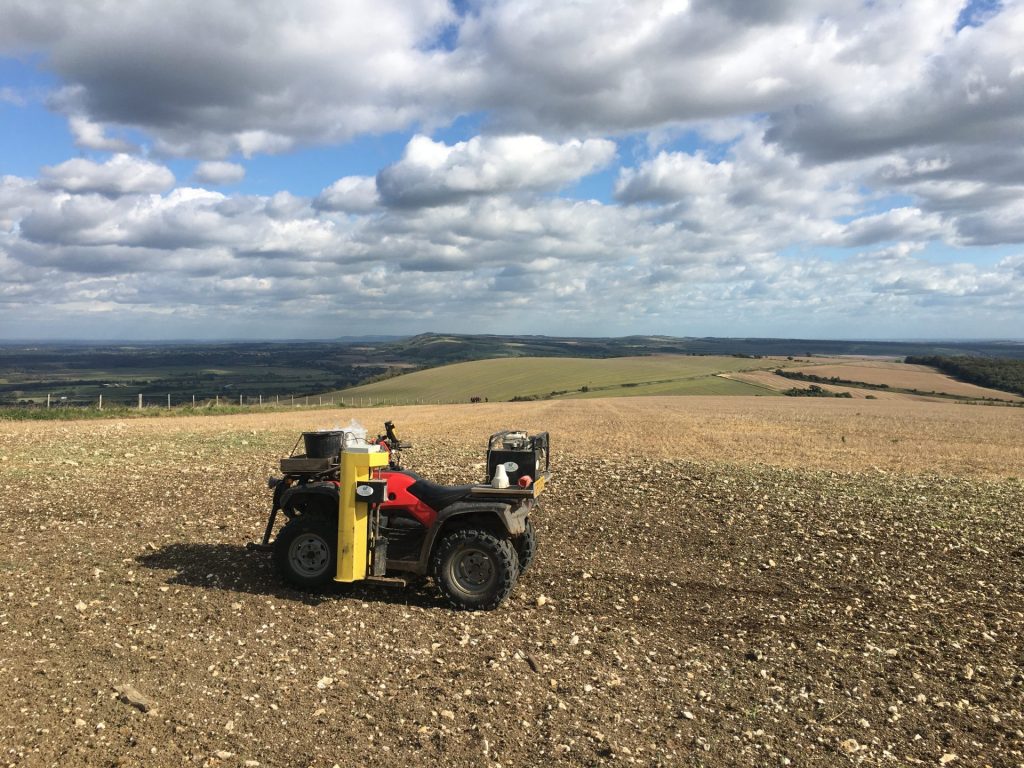
Soil Health Project
The project aims to increase awareness and understanding of the impact of soil health on water quality, particularly nitrate leaching to the chalk aquifer, an important drinking water source. Building on this work, many of the group’s members have taken up land management options developed with and funded by Southern Water aiming to reduce nitrate leaching. As a result of these options, the group reduced nitrate leaching into groundwater in 2019/20 by an estimated 13,500 kg of nitrogen. This means that approximately 13 tonnes less nitrogen entered groundwater in the Worthing drinking water catchments in one year, and as a result the Farmer’s Group reduced their carbon footprint by three quarters of a million kilos of carbon.
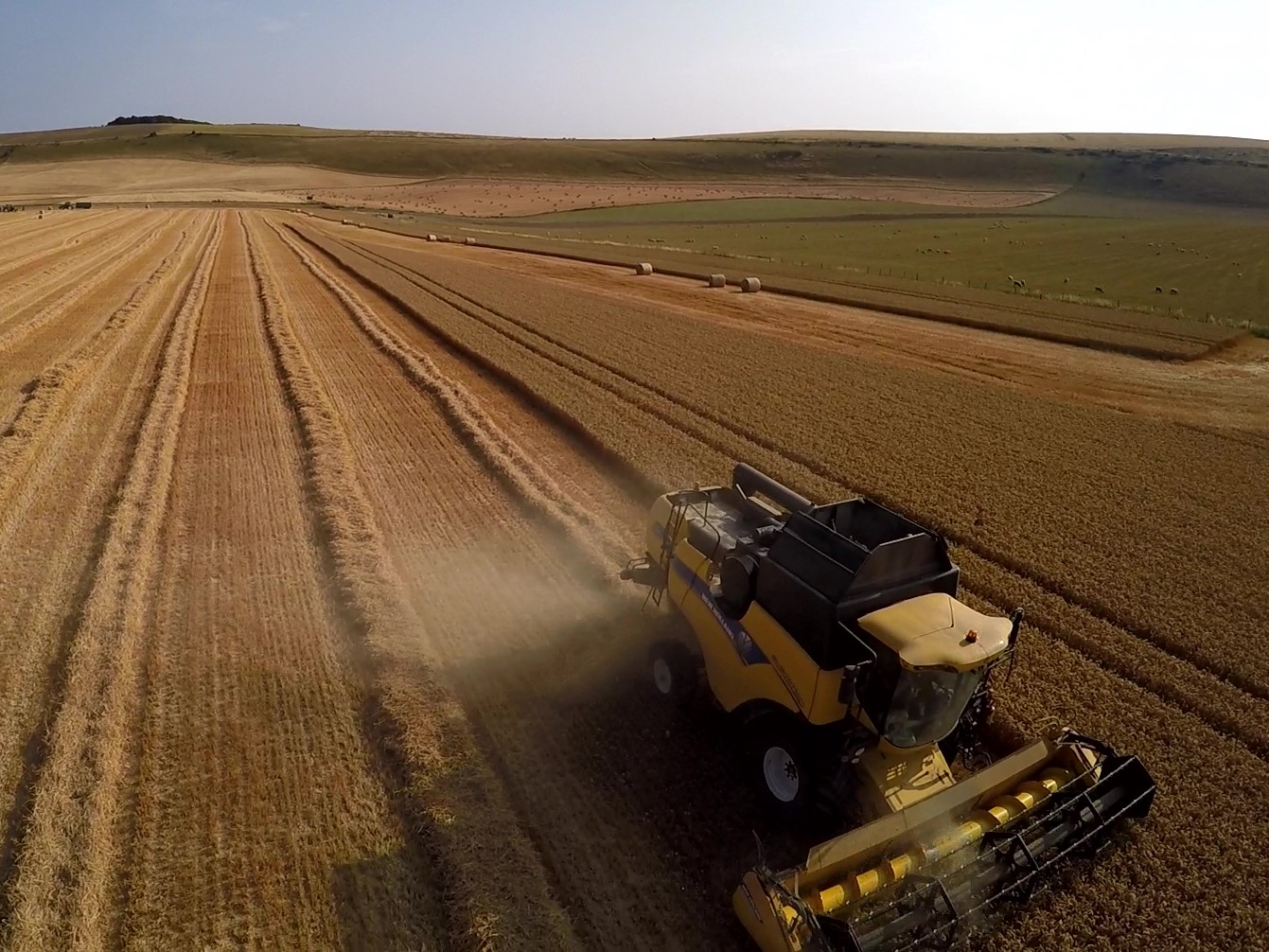
Engaging with our Local Community
The Arun to Adur Farmers Group strives to educate others about the importance of farming and farmland conservation. Once a year the group holds an Open Farm Sunday in collaboration with external partners, where local people can visit and learn about the importance of the conservation work being carried out on farm, in 2019 this attracted 800 local people.
In partnership with the South Downs National Park Authority, the Arun to Adur Farmers Group along with the Eastern South Downs Farmers Group have developed a ‘Meet the Farmer’ project. Along the South Downs Way, a number of small signs were erected displaying QR / NFC codes. Through the link visitors are able to access an informative video of the resident farmer explaining the importance of farming and conservation as well as showing some of the wildlife that can be seen while walking through their stretch of the National Trail. This project has been locally recognised, winning a gold award in the 2020 CPRE Sussex awards.
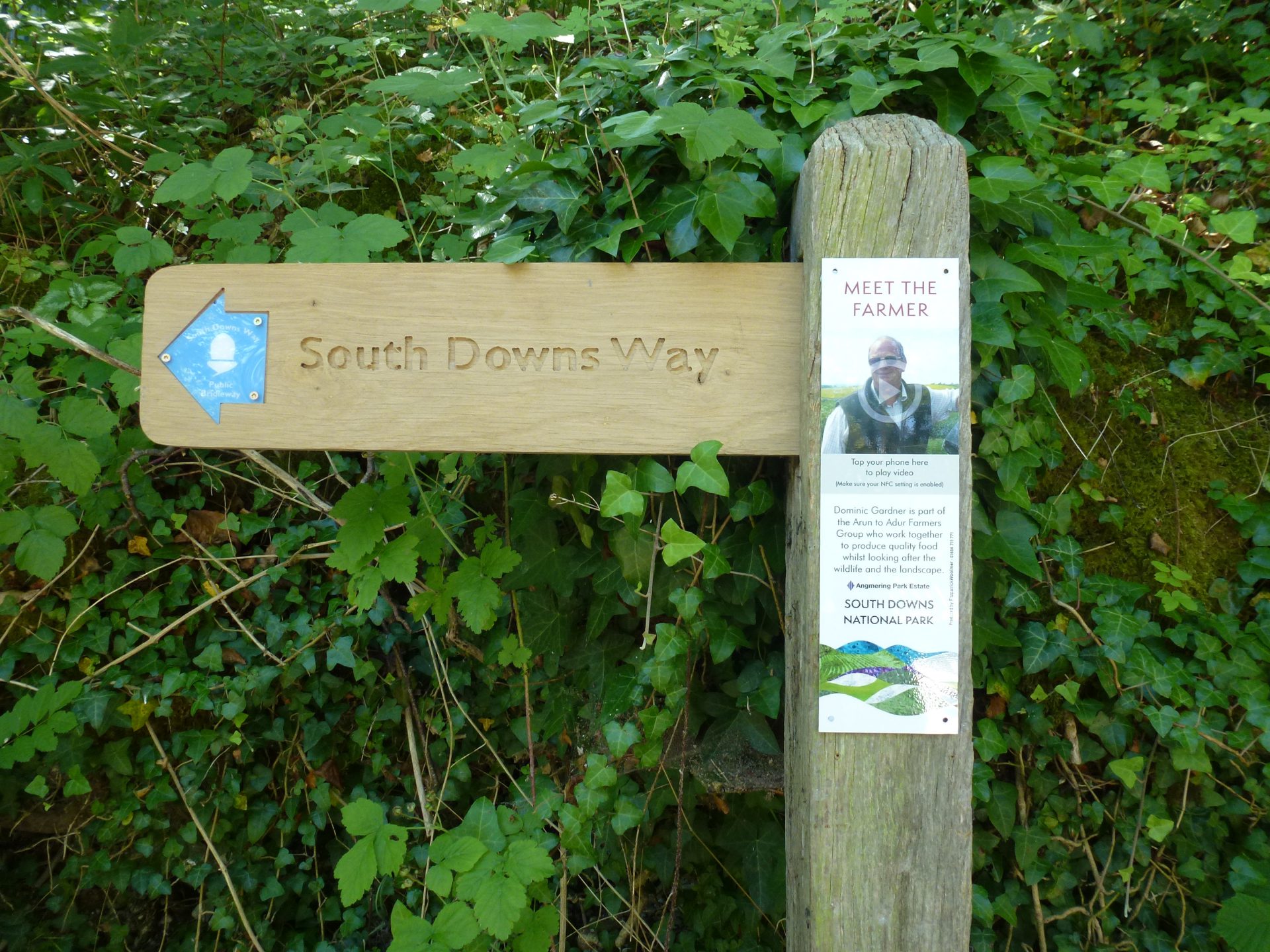
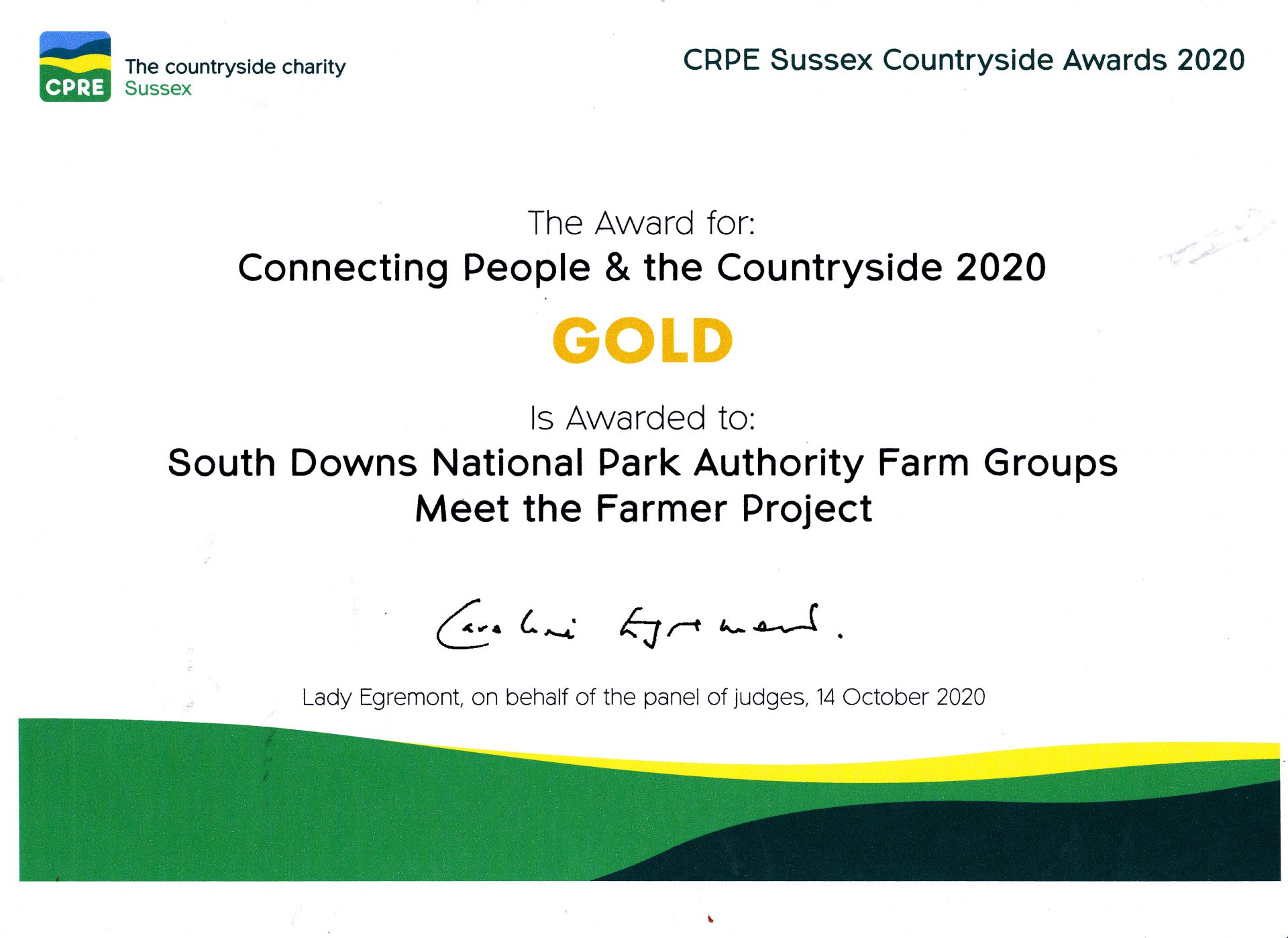
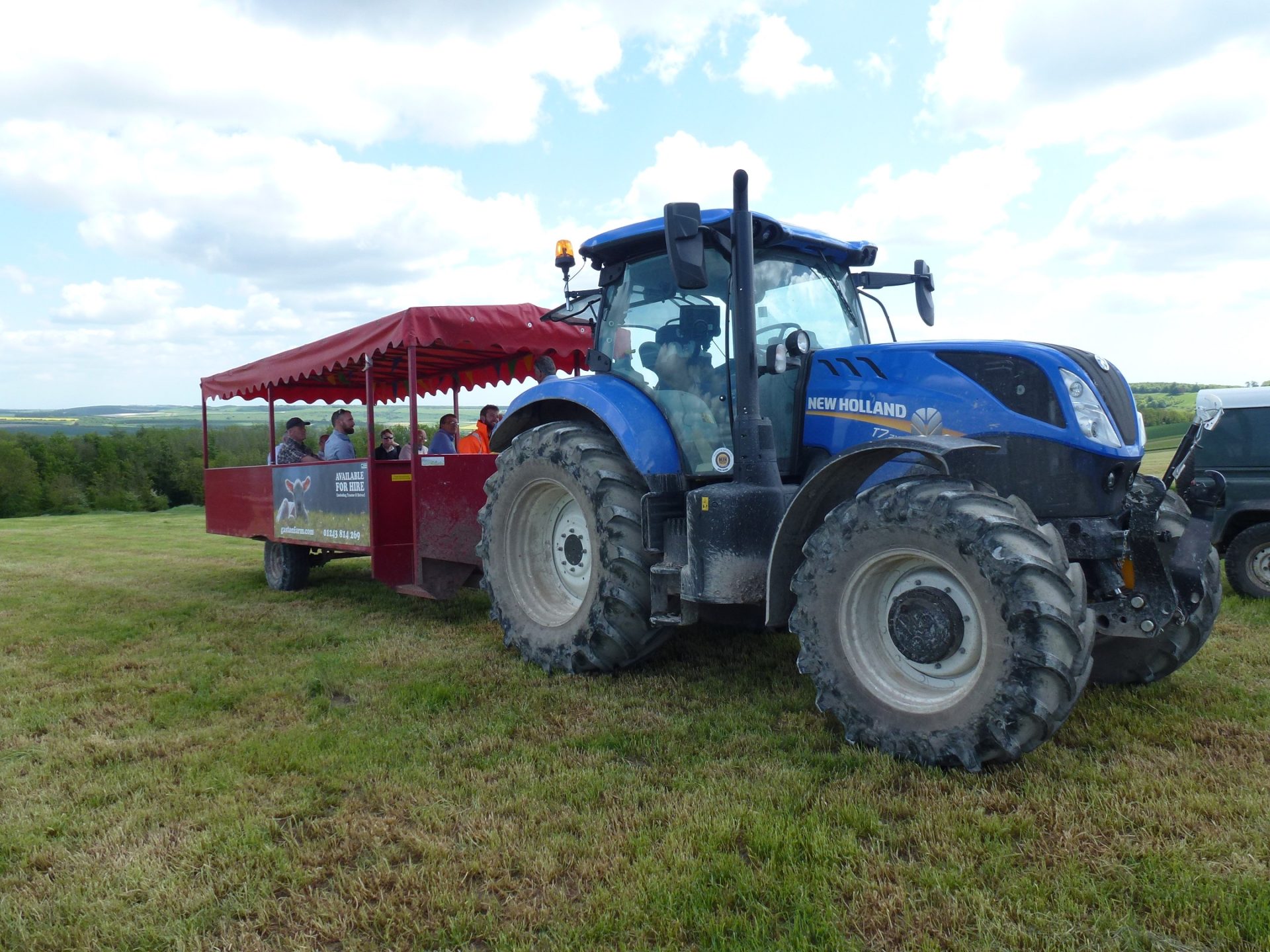
Further Information
If you would like to learn more about the group and the work being undertaken by our farmers please contact Tammy Harris at info@arun2adur.co.uk
Future Targets for the Group
- Explore opportunities to work with the local communities and businesses to ensure important habitats are well-managed, and where possible, new habitats are created. The group has a number of projects ready and are looking for external funding opportunities to complete these.
- The group intends to actively reduce their carbon footprint and offer projects to local communities and business to fund climate change mitigation.
- Using knowledge gained through the Soil Health project, members will increase their awareness of soil as a valued living eco-system, through continual learning, research and support.
- Continue to work with Southern Water to protect the community’s drinking water resources, particularly working to reduce nitrate leaching to groundwater via more efficient nitrogen applications, improved soil health and other land management options.
- Continue to build a stronger sense of a supportive farming community, with knowledge sharing and working together at its core.
- Remain committed to training members on a variety of topics relating agriculture and conservation.
